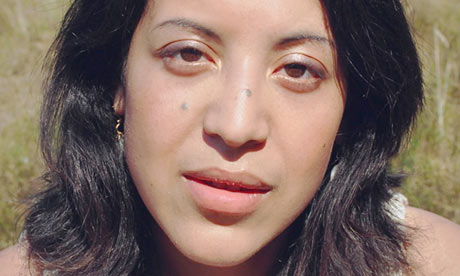
Hi Melanie, you're founder and creative director at Renaissance one – can you tell us more about what your role entails?
My role is a lots of things: it's a combination of creative and business, production (literature and multimedia festivals/events in England and elsewhere) and offering informal and formal mentoring to emerging writers. Conversations with writers about their needs is what really makes me tick, whether it's about a national or overseas tour, the launch of their latest book, earning a certain income, or an interest in reaching a particular audience.
You also founded Renaissance one's sister company Tilt – what was your thinking behind that?
Tilt was set up to give a platform to the spoken word artform and to distinguish it (from the written word). I'm passionate about live events, and how the live experience introduces audiences to the joys and possibilities of spoken word. I feel that it enables a person to give a good account of him or herself, and while you can fling words around – and we all do – you can also transform, transfix and resonate change through words.
We see this in the self-help gurus who fill stadiums, the rise of evangelists, pastors and preachers, neuro-linguistic programming (NLP) and coaching, as well as standup comedy in popular culture – all of which are spoken word led. Through Tilt, I want to explore 'well-placed' spoken word and its possibilities for listeners and audiences.
Where does your passion for literature and in particular the spoken word come from?
From early on I was a voracious reader. Books were a salvation. During tough times and the stages when I was less confident than now, words and being able to peek into other worlds through books and stories kept me going and helped me reach out. I practiced words in my head until I had the confidence to speak them and through practice, I find these days that I have a fluidity of thought, voice and meaning.
I'm keen to share this, but rather than tell it through a lecture or literal 'show and tell', I would rather demonstrate it through events offering a collective experience. My passion is cultural too, in that my early experiences with my Caribbean family and friends (reading and listening to stories) were rich with orality, chit-chat, picong (wordplay), double entendres and tall tales.
What changes have you seen in the popularity of the spoken word since you started?
I've seen and been amidst the proclamations of spoken word as the new rock'n'roll, the ecstasies of Love Jones' coffee shop performance poetry and a few artists amassing record deals for recordings and albums. There have been lots of changes.
The formula of a spoken word artist or event of note possessing a distinctive and resonant voice, superb delivery and having something important to stay for our times remains a comforting constant.
What do you think the challenges are in finding new talent in literature and the spoken word?
I think there are actually few challenges in finding new talent. The talent's here and it's accessible. There are, however, challenges to developing this talent because the sector lacks sustainable structures for nurture and career progression, in relation to the many young people, undergraduates and graduates looking for opportunities.
There's a stasis that needs to be addressed, and the big question of how institutions, small companies like mine and sole traders and freelancers can pool their resources and expertise has yet to be tackled. I'd like to see the sector more joined up, and viewing its different sizes, diversities and interests as an asset and an advantage, an ecology, it can exploit.
Do your events, as opposed to literature tents at more mainstream festivals such as Glastonbury, create a better platform for aspiring spoken word artists?
Many aspiring artists these days move easily between high art, underground and whatever else is out there – it was ever thus. Renaissance one and Tilt enjoy taking part in tents at mainstream festivals as well as collaborating with more edgy venues.
It's fluid and that approach allows you to gain facility and flair. The distinction I'd make is that, as we've seen in the music industry, access to the mainstream doesn't necessarily make for success. You get to walk on the stage but you're relying on someone to turn the lights on.
What effect do you think the recent arts cut will have on smaller, more niche areas of the sector, such as spoken word?
Spoken word has always been the runt of the family in terms of arts funding allocation, so this isn't new nor the main issue. More widely, the sector has been devastated in terms of confidence, resources and by the challenges of sustainability, which has led to caution (and understandably so).
The key to long-term survival? Strive on despite the cuts, find ways to incrementally and cohesively build on what you are doing and choose what to focus on in terms of what will help you 'step up' and build. For me personally, the key is also to have a broad-ranging and high-quality taste in spoken word.
You describe your event London Liming as "spoken word meets carnival" – why combine the two?
Combining the two is about having the best possible effect: carnival is alluring, intoxicating and encourages losing yourself – spoken word is about communication and the power of conversation. Collisions here we come! The combination is personal too because as a half-Trini, half-Jamaican, I'm instigating a home-from-home event, London style, that everyone can enjoy and take part in.
Melanie Abrahams is founder of Tilt and Renaissance one – follow her on Twitter @wordtraipser
This content is brought to you by Guardian Professional. To get more articles like this direct to your inbox, sign up free to become a member of the Culture Professionals Network.

